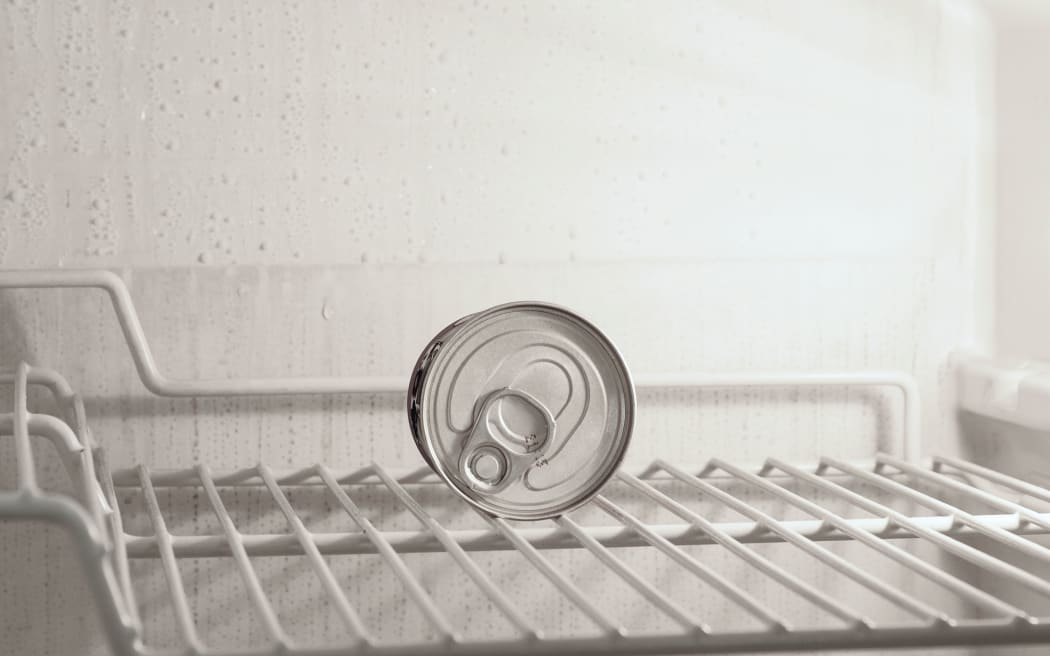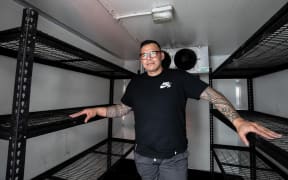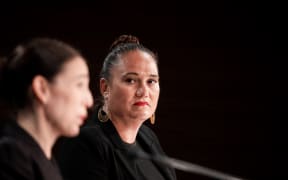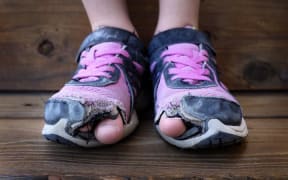
KidsCan surveyed its partner schools on the impact of the rising cost of living and the responses indicated some students were surviving on food provided at school. Photo: Unsplash / Enrico Mantegazza
"The worst time in 17 years."
That's how KidsCan founder and chief executive Julie Chapman describes the impact of the cost-of-living crisis on students and families.
The charity, which is dedicated to helping Kiwi children affected by poverty, has launched an urgent appeal for donations in response to the record number of children needing support this summer.
An increased number of students are needing help, with schools ordering food for over 10,000 more children a day than at the start of the year.
KidsCan is now supporting 877 schools nation-wide, helping to feed more than 49,000 students a day.
Chapman said whānau were at breaking point and a further 39 schools were on the waiting list for help.
"In the 17 years that I've been running KidsCan, this is the first year that we've had teachers and principles breaking down and crying as they talk about the level of deprivation that children are facing.
"The situation is pretty dire. We're seeing record demand for KidsCan food at school, as families go hungry at home."
Chapman said teachers and principles had been crying out for help.
"Parents are having to decide between bills and basic essentials for their children, even with both parents working," one principal wrote.
A social service provider said families were not able to cope with the rising cost of food.
Te Puea Memorial Marae chairperson Hurimoana Dennis said more innovation from the government and supermarket chains was needed to help tackle the issue.
"Some whānau have the support, they're getting the support but are not able to cope with the continuous rising cost of food."
Going to McDonald's twice a week was considered to be an outing for some families, but they could not do things like that anymore, Dennis said.
KidsCan surveyed its partner schools on the impact of the rising cost of living and received more than 500 responses.
Teachers said some students were surviving on food provided at school, with cupboards at home empty by the end of each week.
A principal reported one child telling her: "Dad was crying last night because he said it's his job to feed us kids, but he doesn't get enough money, and everything is so expensive".
Children were worried about family money and their parents' well-being, she said.
Chapman said as the holiday season approached, some whānau were at breaking point.
"Going into Christmas is a really tough time for families because they do want to provide for their children, but schools are literally telling us that families are just trying to survive.
"They're not thinking about Christmas or any of those things, they're just concerned about keeping a roof over their heads."
Asked about KidsCan's concerns regarding the number of children it was now having to feed, Prime Minister Jacinda Ardern told Morning Report she had not yet heard the comments, but that lunches were now being served to 200,000 learners across 900 schools.
"Obviously [KidsCan's] role has changed a lot since we made the decision to expand healthy lunches in schools ... and so that obviously has changed-up the way that KidsCan will be operating, but that was the right thing to do."
The government wanted to ensure children were not stigmatised and she believed the universal provision of lunches at low-income schools would be making a difference to material deprivation, Ardern said.
"The difference with KidsCan is that they tended to do individual kids."
The government had managed to turn around "all nine measures of child poverty", she said.
"They're declining, and compared to the GFC we have fewer children who've experienced hardship through this significant economic crisis than we did the last one."
School trying to remove barriers to learning
A Western Bay of Plenty school is providing breakfast, lunch and dinner - and even transport so kids can get to class.
As well as KidsCan's research on children going to school hungry, it's also found some homes with two working parents were having to choose between paying the bills and basic essentials.
Te Puke Primary School principal Andrea Dance said there had been a drop in the number of children coming to school, sometimes because they haven't eaten or because their parents could not afford fuel for their car.
"So we're trying to eliminate those barriers with the resources that we have got with the support like KidsCan or the other trusts we have got in Te Puke..."
Communication with parents was good, she told Checkpoint, and sometimes children were being sent home with more food for dinner or some extra lunches or fruit.
Feeding children meant they weren't falling asleep and were behaving better at school and it meant teachers could teach instead of having to worry about the children's wellbeing.
"If their bellies are full and they're fed and they're feeling warm and comforted at school we get the best out of them in all scenarios - social, emotional and the wellbeing is taken care of," Dance said.
Inflation was making food, petrol and housing a lot more expensive and was having a huge impact on families.
"That's actually where it needs to change."






